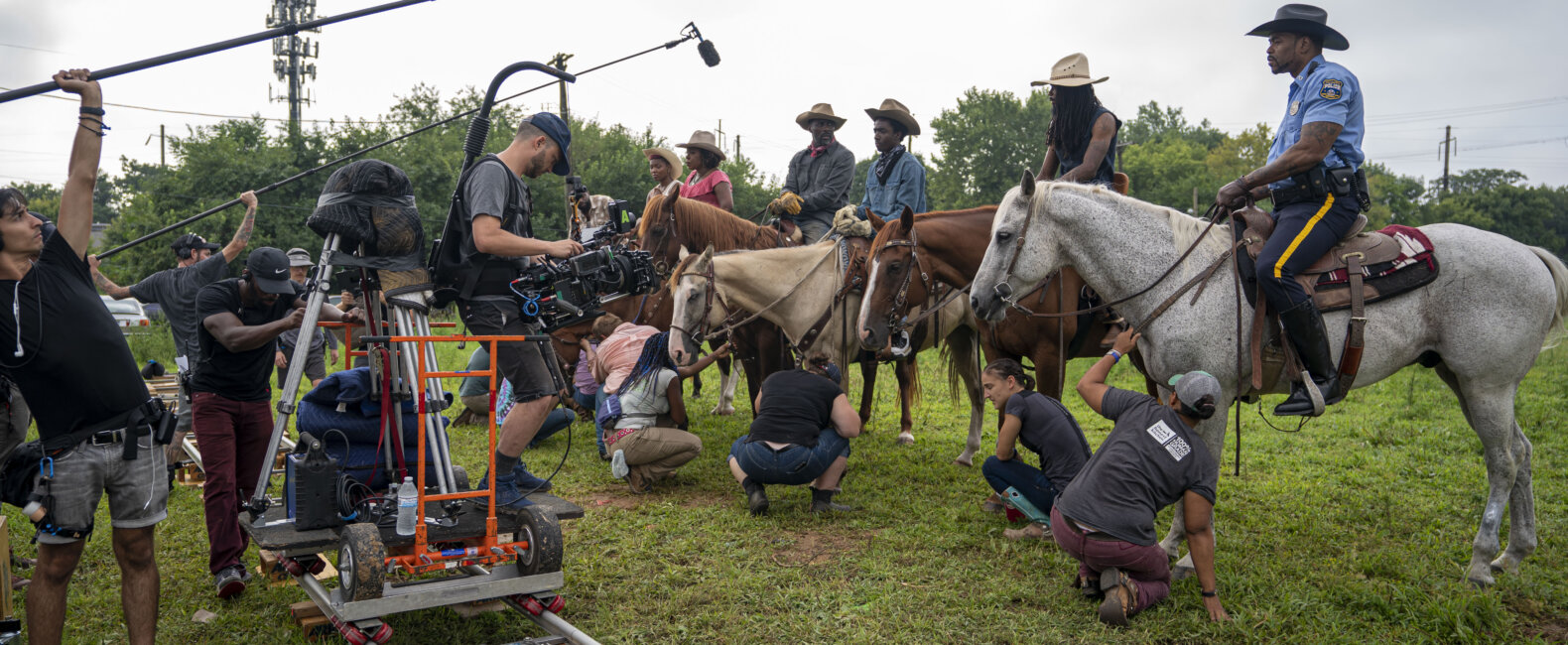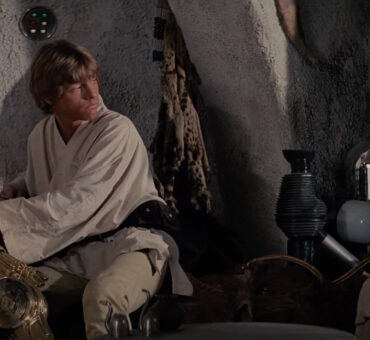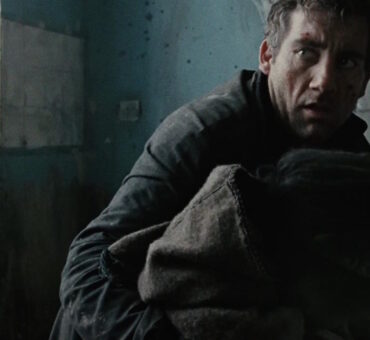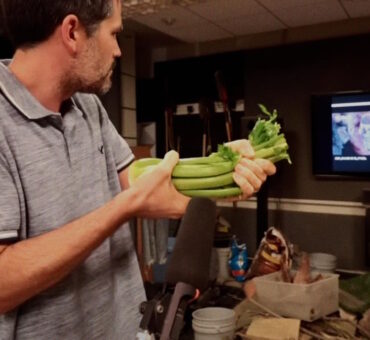Launching your first feature is no small feat. Some will say the hardest part is finding an idea worth pursuing, or that the real roadblock is convincing other people that your idea is worth pursuing. Others point to the logistics of production as the real challenge. One thing is for certain: preparation goes a long way towards making the process smoother and bringing your film to life.
We spoke to a roundtable of producers, writers, and director—having collaborated on director Ricky Staub’s first feature, Concrete Cowboy starring Idris Elba—to discuss what filmmakers should focus on when making their feature debut. Here are five things to consider before starting, as told by Neighborhood Film Co.’s Ricky Staub and Dan Walser, as well as John Wick: Chapter 3 and Mother! producers Jeff Waxman and Jen Madeloff.
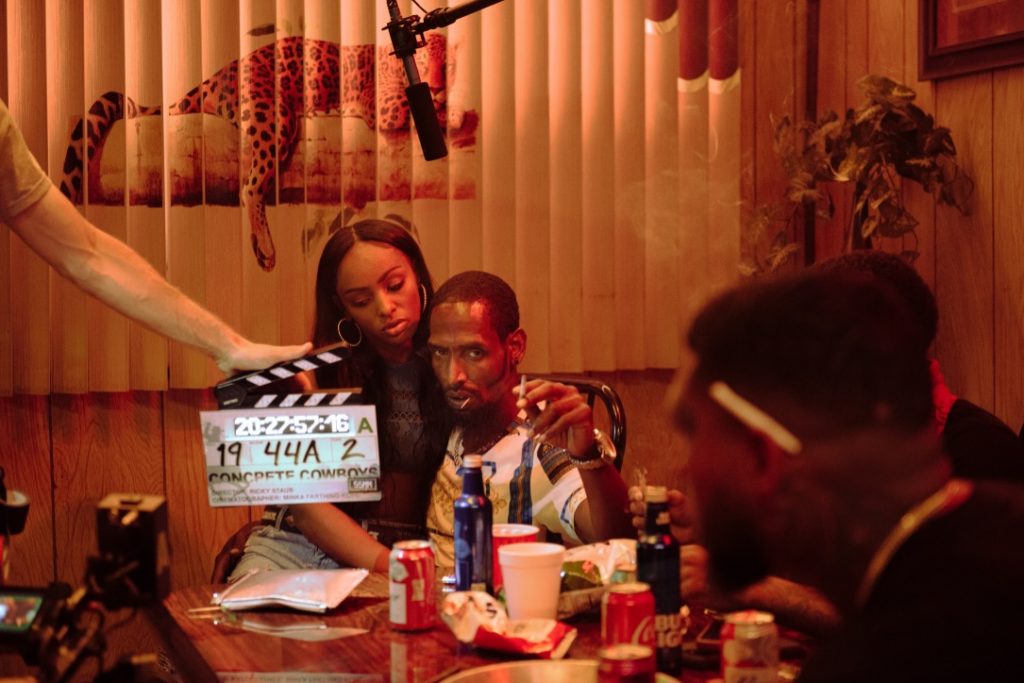
1. Consider making a short film over a commercial.
The most fundamental aspect of good film is great storytelling. It’s non-negotiable if you want to connect with an audience on a deeper, emotional level. Although there are masterfully-written commercials that follow a more traditional narrative structure, there are better venues to showcase your storytelling.
Filmmakers who want to make features know they need a body of work to prove to producers they can actually deliver the goods. A route many take is to shoot spec commercials (in part, because they can often be shorter and cheaper). However, producer Jeff Waxman is an advocate of filmmakers foregoing this route. Rather, search for the right narrative idea and make a short film. It’s still short—and cheaper than a feature—but there’s so much more opportunity for depth in a narrative short when compared to a :30 spot. A spot may look sexy, but it doesn’t quite sell producers on your ability to story tell through a feature-length film. Jeff, Jen, and Dan broke down why short films are a great place for filmmakers to start building their body of work:
Jeff: “I watch commercials and they’re great, but I don’t typically look for commercials for talent. If you can either write or have a script or have done something narrative, that’s the best thing you could do. A short film—producing it, directing it, or writing a script is the best way to get noticed.”
Jen: “Short films are five to 15 minutes, right? It’s not a huge time commitment. You can see so much about where somebody’s head is. Especially when you just get a script you don’t always know if they could take what’s on the page and bring the emotion.”
Dan: “I think some filmmakers who want to make features spend too much time making spec commercials and trying to grow their commercial career, thinking that if they get to a certain pinnacle of commercial filmmaking, it’s just a little bridge to walk over to the other end. It does happen, but not too often. We had this key moment where we had to acknowledge that where we were going as commercial filmmakers was leading us to the top of the commercial pyramid—not to features, television, or more narrative. If you want to go the other route into narrative, spend your time making narrative content. And if you need to make commercials to have money, let it fund your narrative stuff.”
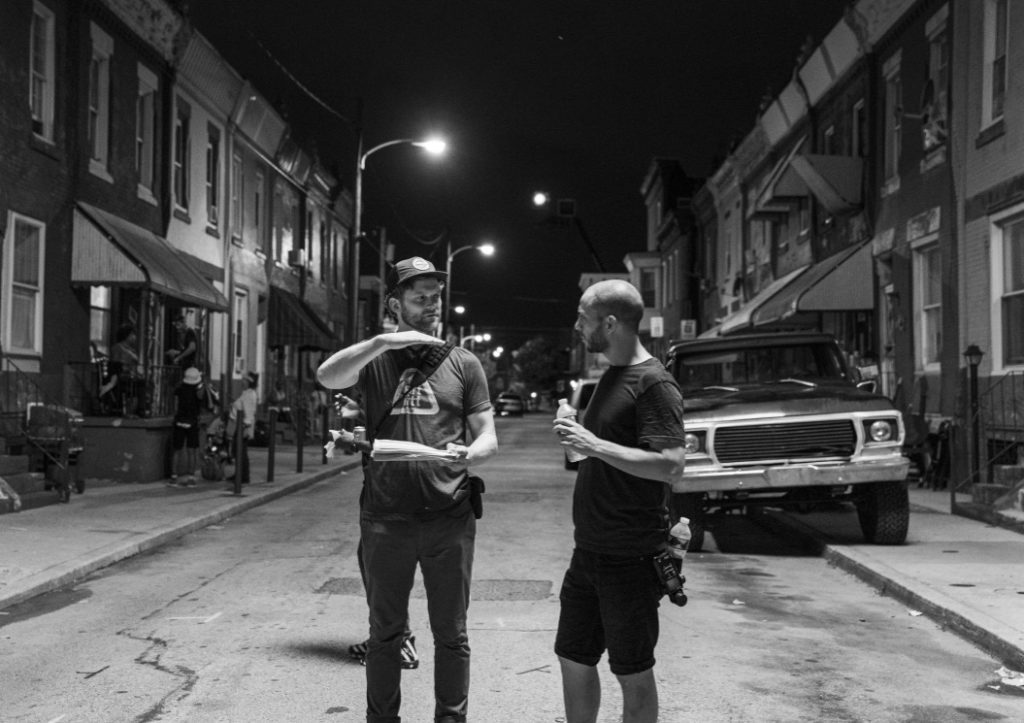
2. Get comfortable pitching your work.
No one has summed up public speaking better than Jerry Seinfeld’s bit on the topic: “According to most studies, people’s number one fear is public speaking. Number two is death. Death is number two. This means to the average person, if you go to a funeral, you’re better off in the casket than doing the eulogy.” As true as that may ring for some, it’s something we all have to practice to get our work sold and believed in. No idea is good enough to bring to life without the ability to communicate it efficiently, effectively, and enthusiastically.
Director Ricky Staub says you can set yourself up for success from the get-go:
Ricky: “You have to make your pitch and feel confident. If you’re not comfortable with public speaking or being in that room, you’ve got to get good at it. I would have never imagined how important communicating our story and vision is to someone. As a new filmmaker, you represent a lot of risks. That’s why people keep making movies after they’ve succeeded. If they’re good, they don’t represent a risk to studios, to financiers, to producers, and to other actors. At that point, you’re a known entity. Until that point, you have to help people understand that even though you’re new to this, they’re just helping you execute it. They don’t have to carry you on their back because of your inexperience. I think that’s a huge part of it.”
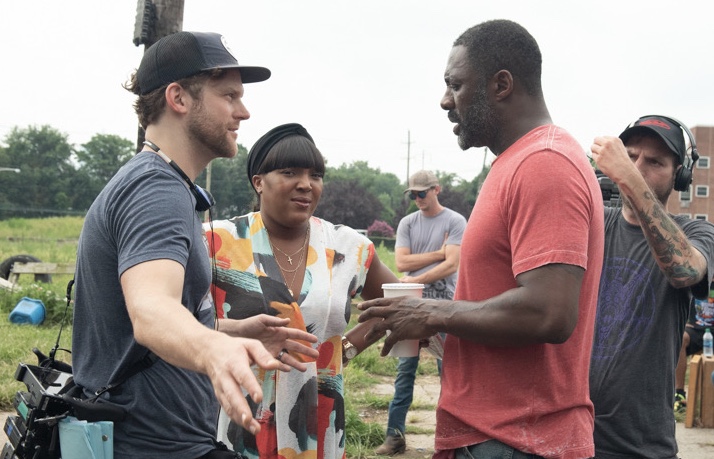
3. Be confident in your material.
Aside from presenting confidently, it’s just as crucial that you let your passion for your work shine through. If you have something you believe can truly move viewers, then it’s going to be easy to project that belief as you pitch. If you don’t feel passionate about what you’ve worked on, that’s another story. But if you know you’ve done something damn good, let that confidence shine through.
Both Jeff and Ricky shared what this kind of confidence looks like in a filmmaker:
Jeff: “Even with experienced directors—and we work with many—a lot of them can’t close the deal. It may be a great movie, but to talk about it and explain it and get people excited about it is a skill. The meetings are something filmmakers don’t consider.”
Ricky: “You should be confident in the material. For example, with the actor meetings, they want to feel out how confident you are. I feel like they’ll even question the script to see how strong your backbone is. Not that you’re obstinate about your vision, you want to come off as collaborative. But I think they want to know that, when the rubber meets the road, you’re passionate because you have a point of view and you can execute it.”
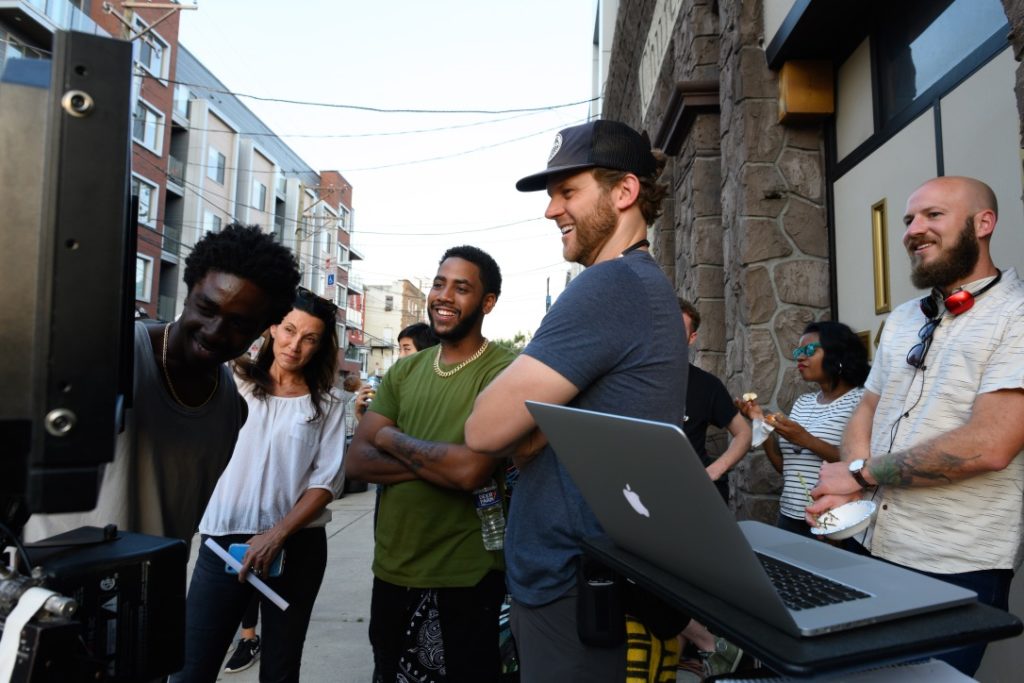
4. Find the right people to partner with.
Sprinkled throughout the filmmaking community are a few auteurs who create masterpiece after masterpiece. They do the bulk of the lifting on their own. Then, there are the rest of us. Which is to say: the people you choose to surround yourself with while creating a film has a big role in the way it turns out. It’s crucial to find people you trust to help make your work better.
Here’s what the team had to say about finding the right partners:
Dan: “For other filmmakers who are ready to make that [feature filmmaking] leap, they should look for their own Jeff and Jen. What I mean by that is, we met producers who had a ton of experience working for studios, but these two were looking to do something entrepreneurial themselves. We caught them at a moment in their career where they wanted to make a shift. It helps if you can find producers who are looking to develop things on their own.”
Ricky: “Dan and I constantly are saying, ‘We don’t know what we don’t know.’ Having Jeff and Jen who do know where we’re headed, and constantly being able to rely on them, is incredibly important. When do we get this person involved? When do I take this type of meeting?”
Jeff: “[Something that] attracted me was their team aspect, both Dan and Ricky. It’s very rare, and you could tell in two seconds they both made each other click. It wasn’t one-sided, like one guy was more talented than the other. If you talked to Dan about a script, he could talk his way through it with anyone. So, we spent the next six months or a year working on a script and getting everything together. We went to LA, where Jen and I were producing Vice with Adam McKay. And I said, ‘While you’re here, you should get an agent. Do this right, you should meet with everyone.’ Rich Cook is an agent at WME and he thought they were great and decided to sign them. Everything starts to feed off each other.”
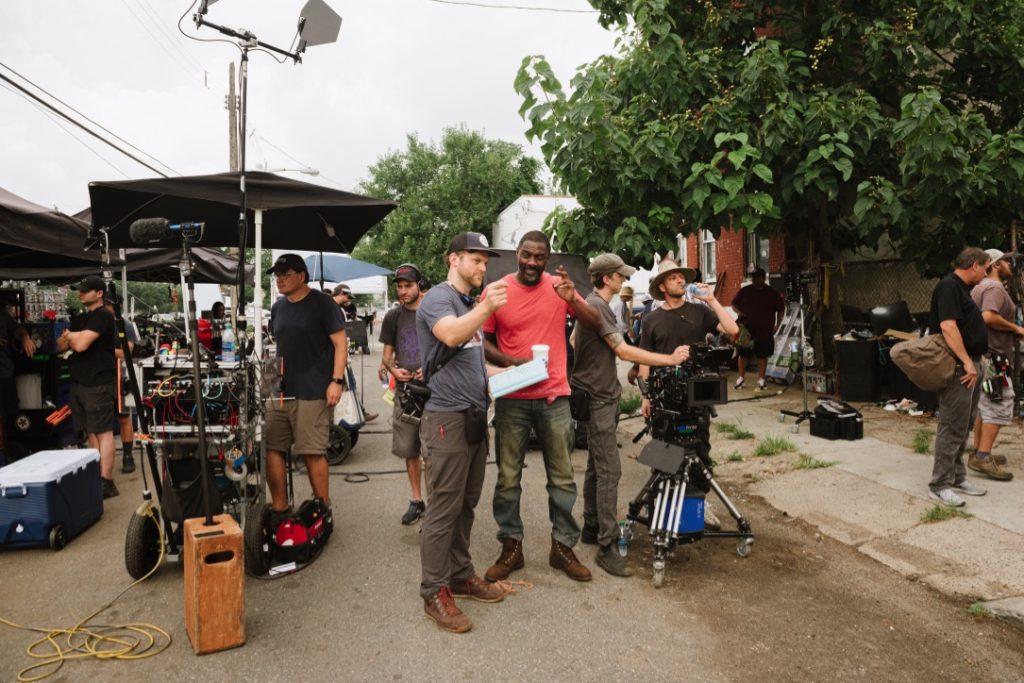
5. Pursue what you’re passionate about.
It may sound self-evident, but never forget that if you don’t love what you do, odds are, no one else will either. So when you’re thinking about your first foray into the feature world, keep in mind that authenticity is everything. Make your passion for the craft be felt in every frame you shoot, script you write, and pitch you deliver.
As Jen shared with us, let your passion for the project suppress any gimmicks:
Jen: “You should focus on what you’re passionate about or what you really feel strongly about, as opposed to trying to do something that you think will impress producers. Do something that you feel really confident and strong about. Do it with emotion and do it with acting, not gimmicks. It’s better to be really raw and emotional.”
Congratulations to Ricky and the whole crew for Concrete Cowboy’s Netflix acquisition for a 2021 release!
For more on making your first feature, read our conversation with Thunder Road Director, Jim Cummings.















































































